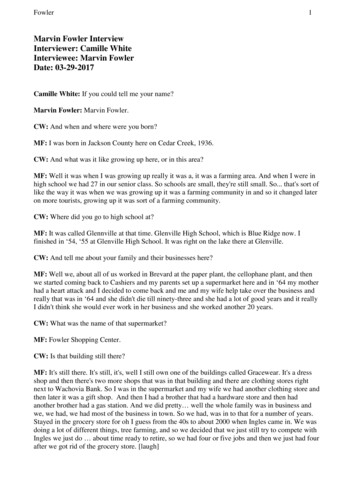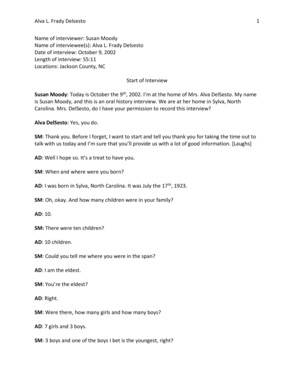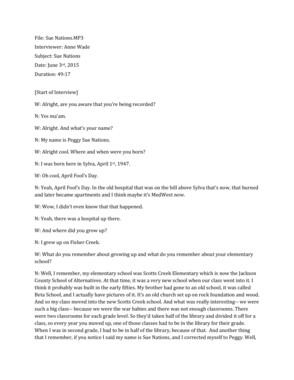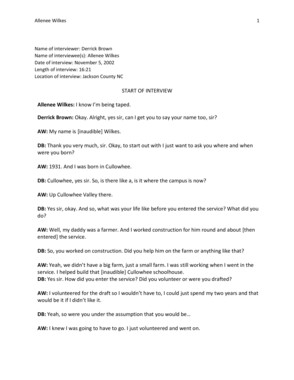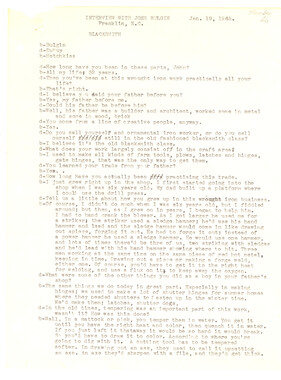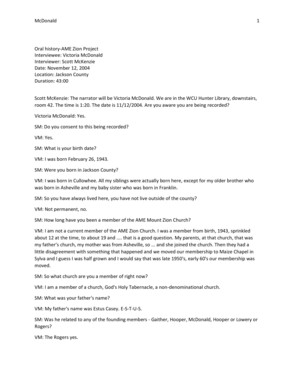Western Carolina University (20)
View all
- Canton Champion Fibre Company (2308)
- Cherokee Traditions (293)
- Civil War in Southern Appalachia (165)
- Craft Revival (1942)
- Great Smoky Mountains - A Park for America (2767)
- Highlights from Western Carolina University (430)
- Horace Kephart (941)
- Journeys Through Jackson (154)
- LGBTQIA+ Archive of Jackson County (24)
- Oral Histories of Western North Carolina (314)
- Picturing Appalachia (6772)
- Stories of Mountain Folk (413)
- Travel Western North Carolina (160)
- Western Carolina University Fine Art Museum Vitreograph Collection (129)
- Western Carolina University Herbarium (92)
- Western Carolina University: Making Memories (708)
- Western Carolina University Publications (2283)
- Western Carolina University Restricted Electronic Theses and Dissertations (146)
- Western North Carolina Regional Maps (71)
- World War II in Southern Appalachia (131)
University of North Carolina Asheville (6)
View all
- 1700s (1)
- 1860s (1)
- 1890s (1)
- 1900s (2)
- 1920s (2)
- 1930s (5)
- 1940s (12)
- 1950s (19)
- 1960s (35)
- 1970s (31)
- 1980s (16)
- 1990s (10)
- 2000s (20)
- 2010s (24)
- 2020s (4)
- 1600s (0)
- 1800s (0)
- 1810s (0)
- 1820s (0)
- 1830s (0)
- 1840s (0)
- 1850s (0)
- 1870s (0)
- 1880s (0)
- 1910s (0)
- Appalachian Region, Southern (15)
- Asheville (N.C.) (11)
- Avery County (N.C.) (1)
- Buncombe County (N.C.) (55)
- Cherokee County (N.C.) (17)
- Clay County (N.C.) (2)
- Graham County (N.C.) (15)
- Great Smoky Mountains National Park (N.C. and Tenn.) (1)
- Haywood County (N.C.) (40)
- Henderson County (N.C.) (5)
- Jackson County (N.C.) (131)
- Knox County (Tenn.) (1)
- Macon County (N.C.) (17)
- Madison County (N.C.) (4)
- McDowell County (N.C.) (1)
- Mitchell County (N.C.) (5)
- Polk County (N.C.) (3)
- Qualla Boundary (6)
- Rutherford County (N.C.) (1)
- Swain County (N.C.) (30)
- Watauga County (N.C.) (2)
- Waynesville (N.C.) (1)
- Yancey County (N.C.) (3)
- Blount County (Tenn.) (0)
- Knoxville (Tenn.) (0)
- Lake Santeetlah (N.C.) (0)
- Transylvania County (N.C.) (0)
- Interviews (314)
- Manuscripts (documents) (3)
- Personal Narratives (7)
- Photographs (4)
- Sound Recordings (308)
- Transcripts (216)
- Aerial Photographs (0)
- Aerial Views (0)
- Albums (books) (0)
- Articles (0)
- Artifacts (object Genre) (0)
- Biography (general Genre) (0)
- Cards (information Artifacts) (0)
- Clippings (information Artifacts) (0)
- Crafts (art Genres) (0)
- Depictions (visual Works) (0)
- Design Drawings (0)
- Drawings (visual Works) (0)
- Envelopes (0)
- Facsimiles (reproductions) (0)
- Fiction (general Genre) (0)
- Financial Records (0)
- Fliers (printed Matter) (0)
- Glass Plate Negatives (0)
- Guidebooks (0)
- Internegatives (0)
- Land Surveys (0)
- Letters (correspondence) (0)
- Maps (documents) (0)
- Memorandums (0)
- Minutes (administrative Records) (0)
- Negatives (photographs) (0)
- Newsletters (0)
- Newspapers (0)
- Occupation Currency (0)
- Paintings (visual Works) (0)
- Pen And Ink Drawings (0)
- Periodicals (0)
- Plans (maps) (0)
- Poetry (0)
- Portraits (0)
- Postcards (0)
- Programs (documents) (0)
- Publications (documents) (0)
- Questionnaires (0)
- Scrapbooks (0)
- Sheet Music (0)
- Slides (photographs) (0)
- Specimens (0)
- Speeches (documents) (0)
- Text Messages (0)
- Tintypes (photographs) (0)
- Video Recordings (physical Artifacts) (0)
- Vitreographs (0)
- WCU Mountain Heritage Center Oral Histories (25)
- WCU Oral History Collection - Mountain People, Mountain Lives (71)
- Western North Carolina Tomorrow Black Oral History Project (69)
- A.L. Ensley Collection (0)
- Appalachian Industrial School Records (0)
- Appalachian National Park Association Records (0)
- Axley-Meroney Collection (0)
- Bayard Wootten Photograph Collection (0)
- Bethel Rural Community Organization Collection (0)
- Blumer Collection (0)
- C.W. Slagle Collection (0)
- Canton Area Historical Museum (0)
- Carlos C. Campbell Collection (0)
- Cataloochee History Project (0)
- Cherokee Studies Collection (0)
- Daisy Dame Photograph Album (0)
- Daniel Boone VI Collection (0)
- Doris Ulmann Photograph Collection (0)
- Elizabeth H. Lasley Collection (0)
- Elizabeth Woolworth Szold Fleharty Collection (0)
- Frank Fry Collection (0)
- George Masa Collection (0)
- Gideon Laney Collection (0)
- Hazel Scarborough Collection (0)
- Hiram C. Wilburn Papers (0)
- Historic Photographs Collection (0)
- Horace Kephart Collection (0)
- Humbard Collection (0)
- Hunter and Weaver Families Collection (0)
- I. D. Blumenthal Collection (0)
- Isadora Williams Collection (0)
- Jesse Bryson Stalcup Collection (0)
- Jim Thompson Collection (0)
- John B. Battle Collection (0)
- John C. Campbell Folk School Records (0)
- John Parris Collection (0)
- Judaculla Rock project (0)
- Kelly Bennett Collection (0)
- Love Family Papers (0)
- Major Wiley Parris Civil War Letters (0)
- Map Collection (0)
- McFee-Misemer Civil War Letters (0)
- Mountain Heritage Center Collection (0)
- Norburn - Robertson - Thomson Families Collection (0)
- Pauline Hood Collection (0)
- Pre-Guild Collection (0)
- Qualla Arts and Crafts Mutual Collection (0)
- R.A. Romanes Collection (0)
- Rosser H. Taylor Collection (0)
- Samuel Robert Owens Collection (0)
- Sara Madison Collection (0)
- Sherrill Studio Photo Collection (0)
- Smoky Mountains Hiking Club Collection (0)
- Stories of Mountain Folk - Radio Programs (0)
- The Reporter, Western Carolina University (0)
- Venoy and Elizabeth Reed Collection (0)
- WCU Gender and Sexuality Oral History Project (0)
- WCU Students Newspapers Collection (0)
- William Williams Stringfield Collection (0)
- Zebulon Weaver Collection (0)
- African Americans (97)
- Artisans (5)
- Cherokee pottery (1)
- Cherokee women (1)
- College student newspapers and periodicals (4)
- Education (3)
- Floods (13)
- Folk music (3)
- Great Smoky Mountains National Park (N.C. and Tenn.) (1)
- Hunting (1)
- Mines and mineral resources (2)
- Rural electrification -- North Carolina, Western (2)
- School integration -- Southern States (2)
- Segregation -- North Carolina, Western (5)
- Slavery (5)
- Sports (2)
- Storytelling (3)
- World War, 1939-1945 (3)
- Appalachian Trail (0)
- Cherokee art (0)
- Cherokee artists -- North Carolina (0)
- Cherokee language (0)
- Church buildings (0)
- Civilian Conservation Corps (U.S.) (0)
- Dams (0)
- Dance (0)
- Forced removal, 1813-1903 (0)
- Forest conservation (0)
- Forests and forestry (0)
- Gender nonconformity (0)
- Landscape photography (0)
- Logging (0)
- Maps (0)
- North Carolina -- Maps (0)
- Paper industry (0)
- Postcards (0)
- Pottery (0)
- Railroad trains (0)
- Waterfalls -- Great Smoky Mountains (N.C. and Tenn.) (0)
- Weaving -- Appalachian Region, Southern (0)
- Wood-carving -- Appalachian Region, Southern (0)
- Sound (308)
- StillImage (4)
- Text (219)
- MovingImage (0)
Interview with Marvin Fowler
Item
Item’s are ‘child’ level descriptions to ‘parent’ objects, (e.g. one page of a whole book).
-
-
Fowler 1 Marvin Fowler Interview Interviewer: Camille White Interviewee: Marvin Fowler Date: 03-29-2017 Camille White: If you could tell me your name? Marvin Fowler: Marvin Fowler. CW: And when and where were you born? MF: I was born in Jackson County here on Cedar Creek, 1936. CW: And what was it like growing up here, or in this area? MF: Well it was when I was growing up really it was a, it was a farming area. And when I were in high school we had 27 in our senior class. So schools are small, they're still small. So... that's sort of like the way it was when we was growing up it was a farming community in and so it changed later on more tourists, growing up it was sort of a farming community. CW: Where did you go to high school at? MF: It was called Glennville at that time. Glenville High School, which is Blue Ridge now. I finished in ‘54, ‘55 at Glenville High School. It was right on the lake there at Glenville. CW: And tell me about your family and their businesses here? MF: Well we, about all of us worked in Brevard at the paper plant, the cellophane plant, and then we started coming back to Cashiers and my parents set up a supermarket here and in ‘64 my mother had a heart attack and I decided to come back and me and my wife help take over the business and really that was in ‘64 and she didn't die till ninety-three and she had a lot of good years and it really I didn't think she would ever work in her business and she worked another 20 years. CW: What was the name of that supermarket? MF: Fowler Shopping Center. CW: Is that building still there? MF: It's still there. It's still, it's, well I still own one of the buildings called Gracewear. It's a dress shop and then there's two more shops that was in that building and there are clothing stores right next to Wachovia Bank. So I was in the supermarket and my wife we had another clothing store and then later it was a gift shop. And then I had a brother that had a hardware store and then had another brother had a gas station. And we did pretty… well the whole family was in business and we, we had, we had most of the business in town. So we had, was in to that for a number of years. Stayed in the grocery store for oh I guess from the 40s to about 2000 when Ingles came in. We was doing a lot of different things, tree farming, and so we decided that we just still try to compete with Ingles we just do … about time ready to retire, so we had four or five jobs and then we just had four after we got rid of the grocery store. [laugh] Fowler 2 CW: How has Cashiers/Glenville area changed since you were born? MF: Well it's went from a logging community to a farming community as far as Glenville and Cashiers and then went from farming to a tourist industry. And I've sort of ‘36 to now I've seen sort of seen all of it. There was a big change and I know back when my father was in business in the 30s, he would haul gas in Toxaway off the train, haul it up with horses to Cashiers. There's about eight or ten cars and then he'd sell, there were tourists than, and he would sell the gas for the A-Models. But he, he brought it to Cashiers with a horse and wagon. So that's way back. CW: So before your parents opened up that supermarket would you guys have to go into Sylva to get stuff... MF: No, there were, there were small stores here. But it was.. we would go...most people would go to town like Harrold’s Supermarket. Some of those go down there once, twice a month and buy groceries. CW: How long did it take to get to Sylva that back then? MF: Well it was, it was...most time it's about an hour, hour and a half. Back, I know back our first vehicles that we had in the 40s was A-Models. And you, you say I went to Sylva and I only had two flat tires. So they, you just carried a pump and patches and you, you never did have no money to buy new tubes or nothing and if you just had one flat tire you done real good. And I had an A-Model and my cousin had an A-Model. And yeah we brag about I only had one or I just had two flat tires. So now that's a big change, but you just stop and take the tire off, but that's a lot, a lot of difference, some big change there. CW: Besides working like in the family businesses, farming, logging, what would you guys do for fun up here since everything, like most businesses were in Sylva? MF: Well now... there's a place called Helen’s Barn in Highland. You ever heard of it? CW: No. MF: It's a, it's a dance hall. Everybody went to Helen’s Barn on Saturday night. They would be always three or four hundred and they were a, a so that's where everybody if you was growing up it's where you were on Saturday night. And then High Hampton, they had a, it's a big country club. And the way they had, the way they done their help, they would bring them in from South Carolina, all over the place and they would come, the girls would come and boys, mostly girls for the dining room. And they come and spend all summer and they housed them and they worked the dining room. So we were growing up, we was always, they would come in a certain day around about the time school was out. So the boys wanted to go down and see the new crop of girls coming in and there'd be about 30 of them. So that's something major growing up. It was, course there wasn’t many boys that would come, but anyhow a lot of the girls come in and they married local boys but anyhow that was, that was you go to Helen’s Barn and then a lot of times you date the girls that come into work for the summer. And that was two things. And then of course we had ball teams and we played ball on the weekend and that was about it. We'd go to Western Carolina when we were growing up, especially the basketball games. That was a thing we liked to do. Course it was... My parents wouldn't let me drive when I was in high school, I rode with other boys. But anyway we go to see Western Carolina play ball, that was another entertainment we had to go off the mountain. Once in a while we go to movies in Brevard. The movie was 10 cents and a ham sandwich was 15 so and a drink. So for quarter you got all that. So there's been a little change in that. Fowler 3 CW: How has Jackson County changed? MF: Well it's, it's really...it's, it's changed a lot. With the tourist, you know you had Dillsboro and all through they're are pretty big in tourist and have been. So they changed from the Mead Corporation was a pretty big industry, you know the paper plant there. And then of course now Western Carolina was a real small college now it's a big college. And then the, the 10th district for all the Western North Carolina the state departments in Sylva. That’s a big industry. And then the hospital is a big industry and Southwestern’s you know an industry too. That's, they don't have the manufacturing plants but they've got, they've got a lot of good paying jobs with the colleges, hospitals, state department. So that's, that's affected the county. It gives them even though they've lost, they did have some textiles there in Sylva, they've lost those but they've got better paying jobs with the colleges and all the other and so really, now with Sylva and the Jarrett House in Dillsboro, they're pretty heavy on tourism too. So and so it's, it's all changed sort of about the same way. But we're, we've only got, we've only got mostly tourism, second homes. It's there, a lot of the homes, most all the homes around the country clubs are a million plus houses, so it's, it's changed a lot in that. People come here to vacation. It's, when we talked when you come up here and step out on the deck it is almost cold. Well that's what makes Cashiers much makes the real estate value. You can play golf in the summertime, in the sunshine and not, most time, not get hot. You got this cool breeze and if you go 15 miles in any direction it gets hot. You come on top of the mountain you're and that's what makes the real estate. Most everything in Western North Carolina, if you get above 3000 feet, it's owned by the Forest Service and the government. And of course where is 4,100 here and most everything above 3,500 belong with the government and Forest Service and parks and all that stuff, so there's just a few little spots that like Cashiers and Highlands and course Balsams a little bit cooler. There’s very few private land that’s above 3500 feet. Cashiers and Highlands is one of them and that's what makes it so valuable is the cool breezes. CW: What can you tell me about the farmhouse on your property? MF: Well we bought the, we bought the land in ‘51 and the fellow that built the house was Guy Zachary. And that, in the Cashiers area, the Zachary's were the first people that moved into was the Zachary family. I think they came up from South Carolina, so there's there's a lot, of the, lot of the historical places here, most of them are… The Tolbert house and it's Zachary family, most of the real old settlers were Zachary's. But anyhow, we bought that and Guy Zachary was the one that built the house and he built it in well a hundred, hundred years ago. It was...and his son he went into the service, World War II and he was killed. He was a pilot in the Air Force. He got killed in World War II and after, after that they sold their place here and moved off the mountain and after their son was killed they, I don't reckoned they liked it here much anymore. CW: So what year would you estimate that, that house was built? MF: It was, it was built...well it's a, it's about, it's about a hundred and five years old. So it was built in about...I think...it's built in 1912 I think. Yeah, I've got a sign of it. As you go by, you might want to take a picture of it. Yeah, 1912. So that's... the man that bought the house from Guy Zachary, there's his son was killed in World War II. Well when it came up for sale, a man named Ken Moore, he just got out of service and they had what's called a G.I. bill in the government would help soldiers coming back from World War II help them, give them a loan to buy farms. So they got a G.I. loan, this man did in both the farm, so it sort of ties, the war tied in. And he kept it...I guess the fellow bought it from Zachary but he probably it bout 15 years and then we bought it from him. That's, and what they done the Zachary's they, in 1912 they came in in the spring that year and put your crop out on the farm and farmed their crop, I don't know exactly what all they had. But back then everybody... if you need a house everybody in the community just went and built you a house and they build their barns that way. So the ones in the community you built the house in the Fowler 4 summer and then they moved in about Thanksgiving and they lived, they lived in a tent all summer while they's building the house. And they would, when they had a slack in their crops, you know, they'd all come and build some more on the house. But by the end of the summer the house was built and they moved in. But that's why...the neighbors would get together and build houses and build the barns. It's... that's how that got built in the... Any other questions? [losing voice] CW: I think that's all. Thank you. MF: You're welcome.
Object
Object’s are ‘parent’ level descriptions to ‘children’ items, (e.g. a book with pages).
-
In this 2017 interview, Martin Fowler talks about growing up in Cashiers, North Carolina located in southern Jackson County. His family owned most of the businesses there, including a grocery store.
-
